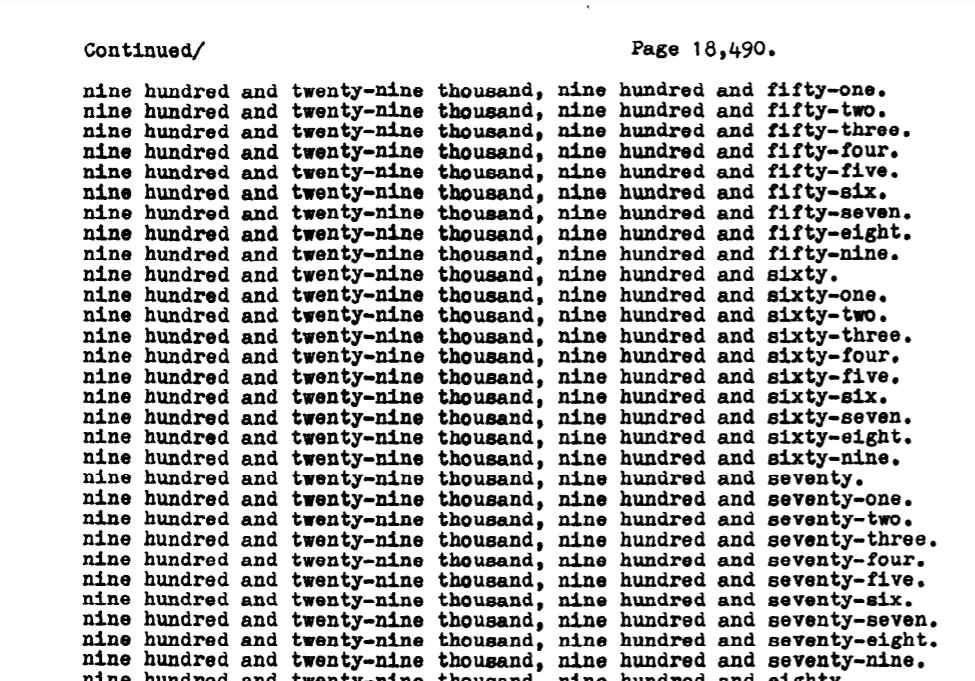He’s The Type That Likes Numbers?
Here’s a fun trivia question: If you were to write out all of the numbers by their names — that is, 1 would be “one” and 2 would be “two,” and so on — what number would you reach before you ended up writing the letter “a”? Assuming you don’t use the word “and” to spell out a three-digit number (it should be “one hundred one,” not “one hundred and one”), the answer is 1,000 — “one thousand.”
And no one knows that better than an Australian man named Les Stewart.
Well, kind of. He used the word “and” when he didn’t need to, and it probably took years off his life.
That’s because Stewart is the Guinness World Record holder for a feat few of us would ever try: “fastest time to type one to one million.” The word “fastest” there is misleading because it was anything but fast. Stewart, reported the BBC, needed something to do “after injuries sustained in a house fire left him unable to work.” So he decided to try to break a world record. He contacted the Guinness World Record book to see what options were out there and, according to a profile in the Courier Mail (a Brisbane/Queensland publication), he “was told that in order to see his name printed in the Guinness Book of Records, he would have to do something extraordinary … and bizarre.” So in early 1982, he got started on an extraordinary and bizarre hobby: he began typing out each of the first one million numbers, by name, one number at a time — and on a manual typewriter, as seen below.

And as the page number in the upper-right corner kind of gives away, the task was a monumental one. Stewart completed his typed-out count in November of 1998, more than sixteen and a half years after he started. He couldn’t type very quickly, either; per the BBC, “he could only type with one finger” due to the injuries suffered in the housefire. The BBC reported that averaged about two hours of typing per page (which seems ridiculously slow, even at one finger per character), only outputting about three pages of written-out numbers.
Along the way, he blew through seven typewriters, about a thousand ink ribbons, and nearly 20,000 pieces of paper. (How much correction tape or White-out he also used has gone unreported.) You can see them stacked next to him as he sits on his very 1980s couch, here, via the Guinness World Records Twitter account. But if you want to read his manifesto, think twice about it; it’s rather predictable.
Bonus fact: Most typewriters use the same keyboard layout commonly used by computers today, called the “Qwerty” keyboard because the first six letters in the top row of letters spell out that “word.” According to Mental Floss, the longest English-language word you can spell using just the top row of keys on such a keyboard is only ten letters long. There are a handful of such words; some examples are “perpetuity,” “proprietor,” “repertoire,” and… “typewriter.”
Double bonus!: Per that same Mental Floss article — and definitely relevant to Les Stewart’s misadventures — the word “four” “has 4 letters, making it the only self-enumerating number in English.”
From the Archives: Six Monkeys, One Month: There’s a saying that if you give a bunch of monkeys a bunch of typewriters and a lot of time, eventually, they’ll give you the works of Shakespeare. But what happens when you put that to the test on a smaller scale?
